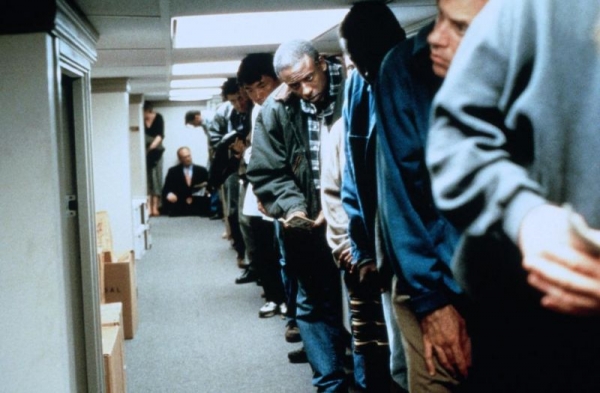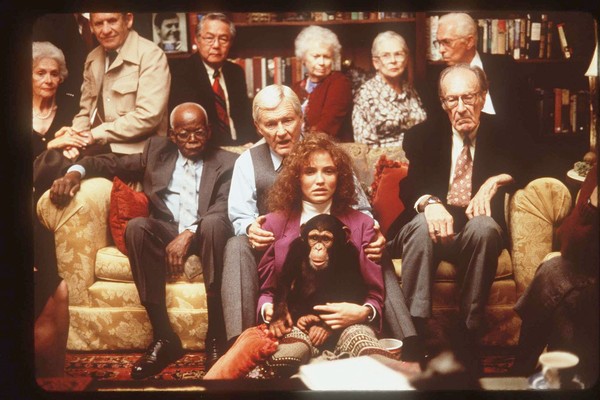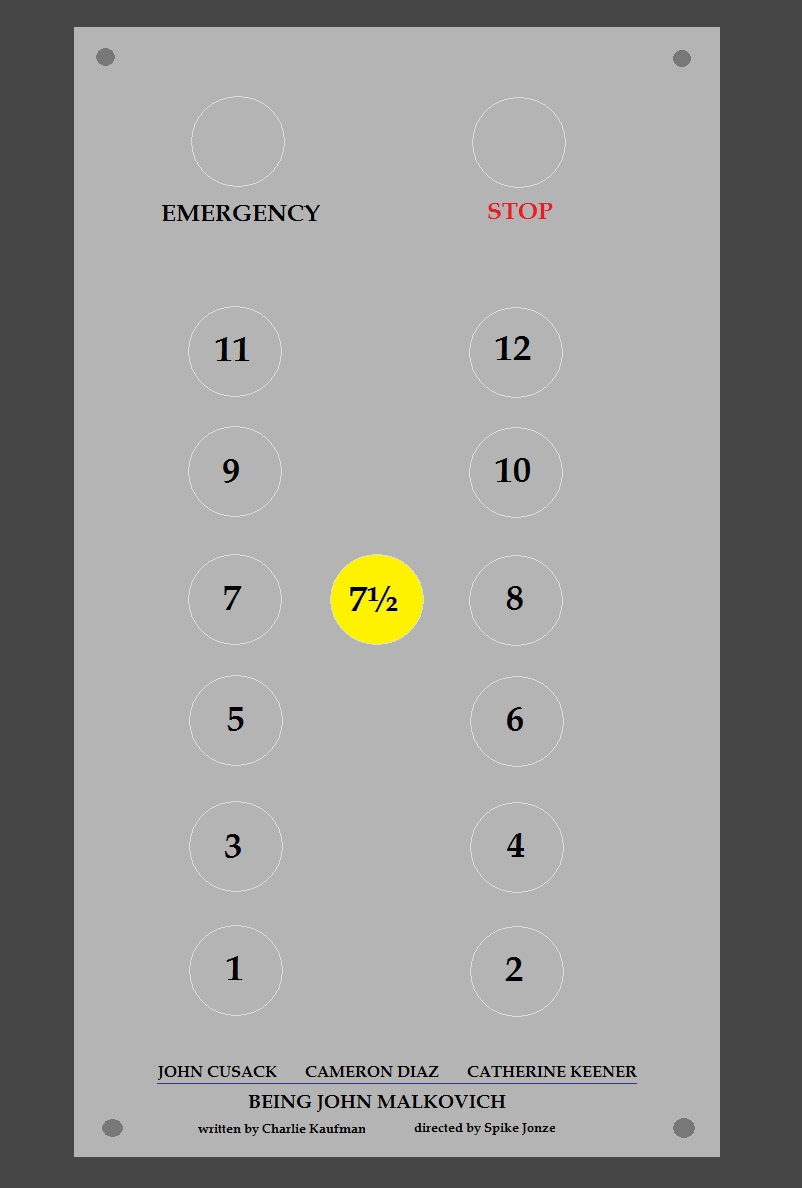August 11, 2013
google's oddball questions (3) How to break out of the worst of HR's best practices (part 3 of 3 part rant)
I recently introduced a hypothesis to explain recruiting (I and II). My basic point is that the art has sunk to a deplorable target of /people like us/. Here's another snippet of evidence from Forbes, but the stuff abounds:
- Can you do the job?
- Will you love the job?
- Can we tolerate working with you?

So what do real HR people do? Let's take a best practices recruiting strategy from a best of breed company as described by a leading HR-oriented publisher:
A few more tweaks of the dial and Colton had specified what current jobs these people should be holding, how many years of experience they should have and their locations.
and reduce it to its essence: Poaching. I poach because I can't think (of anything better). Ergo, the only signal that matters in recruiting is this: is the copy person doing a copy job at a copy company?
In order to establish this point a little more scientifically is tough, but it can be done by an inductive argument:

In fact, there's been quite a bit of research on the topic. [snip] Unfortunately, the human-resources profession has yet to identify a widely accepted alternative. But it's hardly been from lack of trying. Some companies have used "biodata" (a mash-up of the words biography and data). In World War II, it was found that promising pilots could be identified with a simple question: "Did you ever build a model airplane that flew?" In the 1950s, the emerging computer industry latched onto logic puzzles as an attempt, however makeshift, to identify those capable of thinking in new ways.Does the puzzle approach popularized by the tech industry work? A controlled experiment is difficult - you would have to ask a lot of applicants the same question, record the results and then hire them all.
(my emphasis) Exactly. Let's take the last point first: there is no control group in the experiment. So, there is no experiment. All data is therefore meaningless because it isn't compared to anything worth comparing to, except itself.
Which leads us to see Spence's "Job Market Signalling," a seminal article that formed the third leg of the economics school of imperfect information. This paper suggests that, in the absence of causality, such data can generate a stable feedback loop, even when it has nothing to do with the measured quality.
In other words, if one is using techniques that have no scientific, controlled and measurable foundation, then the results from these differing techniques are scientifically indistinguishable -- in having no basis in experimental method. Further, Spence suggests, in the absence of good science, many such unfounded signals are likely to reach stability within a feedback loop of approval, whether they are good, bad or indifferent to the desired result.
Therefore, asking questions about nickels and human poverty is entirely as acceptable as asking teasers about garbage collection strategies. None of them predict anything, and therefore are all equally likely to appear to be as good as each other.
Which, in practical HR market terms, leads to successive waves of obsession over the latest fad technique of unmeasurable quality. We copy what others are doing, because copying others stops us being fired. Last year, brain teasers. This year, poaching. Next year?
In short: GIGO which stands for Garbage In, Garbage Out.
To address the Spencarian inductive argument from the point of Year 0: these techniques once worked. Yes, pilots did self-select themselves by playing with model aircraft, to a small extent. Yes, and you'll see that the same technique worked in the very early stages of growth in the IT field. Before any information existed even the most simplistic test could have an effect. But factor in a few years of information sharing, and the bounty of naïveté disappears. Competition leads to copycat behaviour on the other side of the desk: Everyone who wants to become a pilot then makes a model aircraft, anyone who wants to be a guru installs Linux. Everyone knows computer people are supposed to be good at logic, and pilots are supposed to play with airplanes. Everyone knows google asks oddball questions. Beyond that?
Drop it, move on. Indeed, google, long-suffering foil for my 3-part rant, even google knows that asking oddball questions doesn't work. So says Laszlo Bock, SVP and chief operator of the geople:
On the hiring side, we found that brainteasers are a complete waste of time. How many golf balls can you fit into an airplane? How many gas stations in Manhattan? A complete waste of time. They don't predict anything. They serve primarily to make the interviewer feel smart.
What then can a poor recruiter do?
The first step along this journey is just knowing it: to realise that, if the field of Human Resources is a mess, you don't need to be much better than awful to do better. This is good news! The bar in recruiting is set somewhere close to shoe level so leaping it just requires thought, intent and vision.
The remainder of this rant, and series of posts, is really just that: Vision of the Barriers, as described. Then, Thinking, from that foundation so far laid out. Intent, I leave to you.
Onwards. A couple of barriers from the Economist:
There are two related problems to consider, says Mr Ben-Hur. One is that the "traditional talent deal" is no longer reliable: companies cannot invest in training for their more promising employees and expect to recoup the benefits for a decade.
Oops. Another sacred cow profaned and spoiled by the infidel. Yes, so-called training doesn't work without thought, but that's a rant for another day. Meanwhile...

The other is that firms looking for talent tend to overvalue external candidates and undervalue internal ones. Taken together, the two trends make a sort of sense: an internal candidate may be ready to jump ship; one coming in from outside should be grateful for the job for a couple years at least. But imagining the most talented employees as fish only briefly caught makes it hard for companies to recognise, much less reward, their best performers.
Which leads to a thoughtful suggestion: It is a truism that your biggest asset is your own people. Hence, tip #1:
(1) Ask your people
But the trick here is not to ask them how to employ their friends (a.k.a., people like us) but how to employ their betters. Ask your people how they would employ someone better than themselves? How would they employ the person who would put them out of a job?
As we have seen, there exist pernicious biases that lead organisations to pursue monoculture as if it is a good thing, and refine the concept to include it as a job requirement. For example, I know one organisation that insists that all its job interviewees use its own defined format for answering questions (called STAR if anyone needs a tip to steer clear of that particular monoculture). The format is presented as a convenient recruiting communications framework, so it helps the recruiter. But, as the format is of no use in actual productivity, is encouraged learning for insiders, and is highly spoofable, it amounts to a barrier to entry, a restraint on trade and an encouragement to dishonesty; but worse than that, no matter that HR experts have presumably anointed it from on high, it acts to homogonise the organisation in a way that is almost impossible to break out of.
Which leads to the second point:
(2) search out biases and eliminate them
To some extent, this has to be done carefully. If you can't see why the bias is hurting you, and how to address the root causes, don't go there. But there are some easy biases to see, and just thinking about them can get you on the right track. Diversity helps at a conceptual level, therefore think about that:

- Employ all nationalities *except your own* and/or the dominant one in your organisation.
- Employ women, if your industry is dominated by men. Or, employ men if it's a woman-dominated field.
- If you see a wall of grads in your firm, employ some non-graduates!
By now, we should be ready to appreciate that all 'systems' and practices are subject to dramatic weaknesses. So how does one actually learn about someone, once your flawed system has popped up a name?
If we accept that the CV+interview process is dead, then conducting more interviews, as they enjoy doing in banking, isn't going to help.
There is only one real way, and that is to work with the person. Which leads to the chicken & egg problem -- you can't employ people before you've worked with them, and you can't work with people before you've employed them.
 To get out of the repetitive tedium of monocellular evolution, one needs to take some risks. Design your employment practices to incorporate these risks and use them as opportunities. In essence, this means
To get out of the repetitive tedium of monocellular evolution, one needs to take some risks. Design your employment practices to incorporate these risks and use them as opportunities. In essence, this means
(3) short term engagements
Instead of aspiring to a goal of lifelong employment, realise our world is really about short term engagements in a volatile world. Whether you like it or not, the long term loyal employee is now a novelty.
"More companies now prefer to try an employee out as a contractor, with the possibility of hiring them full-time." Job seekers should be open to various forms of compensation.
(link lost) Do that, and learn. Look at all the ways you can bring a person in on a short term opportunity to find out, really, whether this person works: contracts, of course. Also bit-piece work, consulting, internships. Further, consider competitions, hackathons, outreach teaching. Open source teams. Get it? Google's summer of code is a recruiting technique.

Finally, how do we develop a system that doesn't suffer from all the ills of all of the systems you read in all of those over-priced HR magazines? Let's take a hint from the diversity concept (don't employ university graduates) and broad it:
(4) Do exactly the opposite of what the rest of the world does
How can this be right? Easy, and here's the proof: if these posts have shown anything, it is that the current practices are approximately worthless. Therefore, if the current practices are worthless, and people keep doing them, they are dividing the space into two pools, separated on success/failure over false signals. Because the measurement is worthless, there is likely the same amount of talent, randomly, in one pool as there is in the other.
The only difference is that one pool of talent is contested, while the other is uncontested!
Choose the uncontested pool of talent. Not only does this make it easier because you're the only one swimming in it, but the price of entrance is also much lower. The other pool is being driven up in price, while your pool is being driven down.
How do we turn the 'uncontested markets' strategy into practical techniques to build high ROI teams? Apply some thought about what everyone does -- that's easy because up until now you've likely been copying them -- and simply reverse it. I'll leave a specific list to a later appendix.
 I'll close with this one thought, by way of a caveat: the careful reader will note that google does dabble in most of these ideas, in one means or another. So not withstanding their use herein as a foil for baddest best practices, they may actually be leaders in better practices as well.
I'll close with this one thought, by way of a caveat: the careful reader will note that google does dabble in most of these ideas, in one means or another. So not withstanding their use herein as a foil for baddest best practices, they may actually be leaders in better practices as well.
Copy at least this from them: Don't be afraid to try things out, and to admit mistakes. And watch the movie Being John Malkovich if only to figure out the screenshots herein...
Posted by iang at August 11, 2013 03:12 AM | TrackBackPerhaps something more interesting and relevant would be a discussion about secure hiring. How do you hire trustworthy employees? How do you keep the untrustworthy ones out?
Posted by: PG at August 11, 2013 09:28 AMToday I read this article: http://www.bakadesuyo.com/2013/09/how-to-ace-a-job-interview/
Its first "tip" was the be like your interviewer rather than yourself.
That sounded eerie familiar to your findings LOL
Posted by: Twan - How to ace a job interview at September 8, 2013 12:15 PM